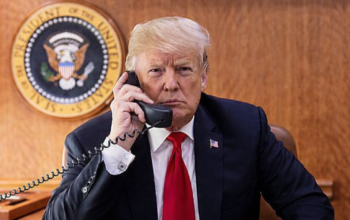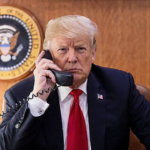The trial in the high-profile antitrust case against social media giant Meta is set to begin in Washington on Monday.
The U.S. competition and consumer watchdog, the Federal Trade Commission (FTC), alleges that Meta, which already owned Facebook, acquired Instagram in 2012 and WhatsApp in 2014 with the intent to eliminate competition, thereby creating a monopoly.
Although the FTC approved these acquisitions at the time, it has committed to monitoring the outcomes. If the FTC wins the case, it could force Meta’s CEO, Mark Zuckerberg, to sell Instagram and WhatsApp.
Meta has expressed confidence in its position, with experts suggesting the company will argue that Instagram users have had a better experience since it was acquired.
Rebecca Haw Allensworth, an antitrust professor at Vanderbilt Law School, explains that the FTC’s argument centers on the idea that Instagram was acquired to neutralize a growing competitive threat to Facebook. She adds that Zuckerberg’s own words, such as his belief that “it’s better to buy than to compete,” may serve as strong evidence in the case.
Meta, in response, is likely to argue that the intent behind the acquisitions isn’t particularly relevant to an antitrust case. Instead, they’ll focus on whether consumers have benefited from the merger. They will present evidence that Instagram’s success can be attributed to the advantages of being owned by Facebook.
Zuckerberg and Meta’s former COO Sheryl Sandberg are both expected to testify, and the trial could last several weeks.
The case, FTC v Meta, was filed during Donald Trump’s first presidency, but it may become more politically charged during his second term. Zuckerberg has reportedly lobbied Trump to have the FTC drop the case. While Meta did not confirm this, the company issued a statement saying the FTC’s lawsuit is unfounded, given that the acquisitions were cleared over a decade ago.
Relations between Zuckerberg and Trump have been tense, particularly after Trump was banned from Meta’s platforms following the January 2021 U.S. Capitol riot. However, the relationship has since softened, with Meta contributing to Trump’s inaugural fund and appointing UFC boss Dana White, a Trump ally, to its board of directors.
The political climate surrounding the case has also shifted, with Trump’s recent decision to remove two FTC commissioners in March fueling concerns about political interference. Two Democratic commissioners, Rebecca Kelly Slaughter and Alvaro Bedoya, were in the minority on the five-member FTC, and their removal has been seen by some as an effort to intimidate the commission into aligning with Trump’s political interests.
The FTC’s case against Meta is viewed as a difficult challenge, particularly given that there is more competition in the personal networking space that Meta operates in, compared to industries like online search. Laura Phillips-Sawyer, a professor of business law, believes the FTC faces an “uphill battle” in proving its case.
Meta, in its defense, maintains that Instagram, Facebook, and WhatsApp face stiff competition from platforms like TikTok, YouTube, and iMessage.









